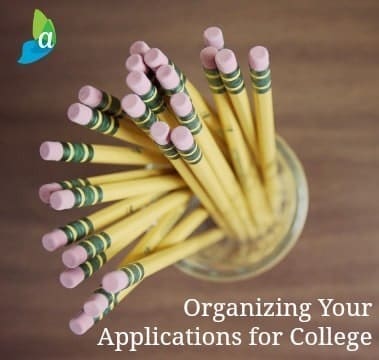Fast Facts: Preparing Your College Application
Applying to college has always been a multi-layered process and the competition is only growing tougher. According to the National Center for Education Statistics, enrollment in colleges across America is at an all-time high with 21 million students attending degree-granting institutions in 2010. Adding to this growth pattern, the number of students aged 25 and up is also increasing rapidly, with the percentage up by 34% between the years 2000 and 2010.
With so many more prospective students vying for spots at our nation’s institutions, knowing the process inside-and-out is the best way to get a leg up on the competition. Whether you are a high school senior planning for college, a professional looking to further your career or simply want to learn a new skill, applying to college requires careful planning and foresight. If you truly want to get noticed by admission counselors, read on and take notes.
College Application Checklist
Each institution requires a variety of materials from prospective candidates. Depending on your preferences, some colleges require supplemental materials to be sent along with your application.
Online colleges like Penn Foster, which offers programs like early childhood education associate degrees, have streamlined this complex process into a simple one-step online enrollment application.
Your first step should be to make yourself aware of all the requirements so that you can meet each school’s deadline.
Organize this information by creating a checklist outlining everything you will need for each school and prioritizing items based on due dates. This way, you won’t miss anything that is required and will have plenty of time to gather all the necessary documents.
What Colleges Want to See on Your Application
There are some staple items common to every application that you can have prepared and ready, no matter where you choose to apply. As collegeboard.org outlines, most schools require either a high school diploma or GED as a part of your educational history, so make sure you take the steps necessary to have this requirement fulfilled.
If you already hold a degree, you will need transcripts to verify this, and you should contact the school where you earned the degree in advance to acquire copies. Some institutions also require admissions test scores like the SAT. These should be sent directly from the testing agencies themselves.
Finally, you should seek out people who know your character, work ethic, and can speak positively about your academic persona, in order to write you letters of recommendation. Like applying for a job, it is important that you choose from a variety of people so that you can highlight the magnitude of ways in which you excel.
Make sure to contact these people well in advance of deadlines so that you can get these letters to their destinations without a hitch.
The Ticket is Your Essay
While test scores do play a role in your admission, the place where you can really shine is in your personal essay, or any supplementary questions a college requires. It is through your writing that you can show your true self, as scores can only give a skeletal idea of your personality.
Ultimately, weaker scores might be overlooked if you can shine a light on your strengths with your writing. The National Association for College Admission Counseling, (NACAC) advises that you start early, remain honest, take risks, and most importantly, take the time to revise your essay.
Leaving this part of your application for last minute will show, and you don’t want admissions counselors to get the sense that you cannot manage your time. You want the best parts of your personality to be showcased, and if your work has glaring grammatical errors and lack of focus, you will send the wrong message.
While applying for college can seem like a daunting task, preparing early can make the process a lot less stressful. So gear up, create your checklist and start writing. Ideally, by this time next year, you can be happily enrolled in the college of your dreams.





